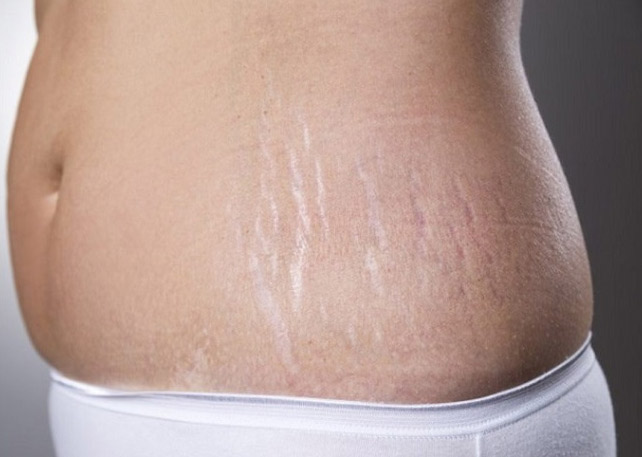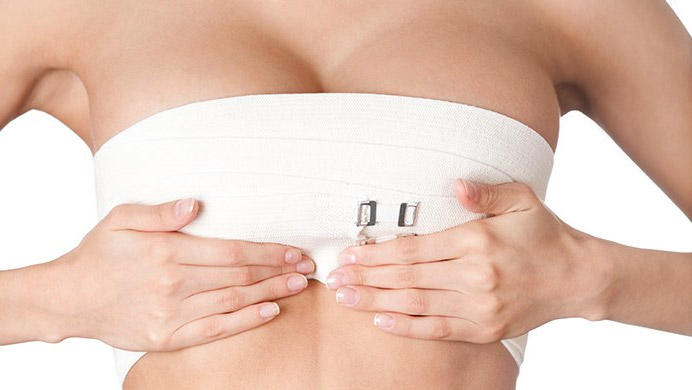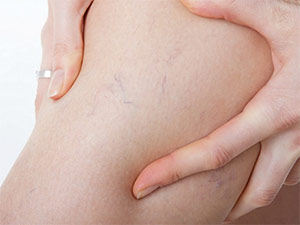Congratulations – you’re pregnant! You have an exciting time ahead of you as the little life growing inside you gets bigger and starts to move around and stretch its limbs, and you look forward to finally meeting your baby face to face. But there are definite downsides to being pregnant, as you will already be discovering.
In emotional terms, pregnancy is a special and beautiful time when a mother protects and nurtures her tiny child, from a ball of cells too small to see, to a full-grown baby. But, biologically, it’s a different story, with a greedy fetus doing everything it can to divert your body’s energy and nutrients from you to itself, wreaking havoc with your hormones in the process, and making you tired, achy and sick.
Fortunately, there are ways to relieve many of the ailments and annoyances of pregnancy – and remember, “this too shall pass”, and in a few months it will all be worth it.
Morning sickness

Don’t be fooled by the name – some people get morning sickness in the evening, and some people get it all day. Some lucky people avoid it altogether. You’ll probably feel most nauseous at the time of day when you’re usually most tired, so you’ll get morning sickness if you’re a night owl, or evening sickness if you’re a morning person.
Hunger can trigger the nausea, but ironically you feel too sick to eat much. The trick is to eat little and often, grazing throughout the day. Get some healthy snacks, like rice crackers or trail mix, and keep them on your desk or wherever you spend most of your time. Eating crystallized ginger can also keep the nausea at bay.
Another surprisingly effective approach is to wear Sea-Bands, an acupressure-based wrist band developed for motion sickness. However, if you’ve chosen to keep your pregnancy a secret in the first trimester, and you’re seen wearing a pair of these on dry land, you might give the game away.
Stretch marks

Stretch marks appear on your baby bump because your skin is forced to grow faster than it comfortably can. You might already have a few on your hips, thighs or breasts from puberty, but you didn’t grow as fast then as you will when you’re carrying a baby that’s growing from the size of a coconut to the size of a watermelon in a few weeks.
They do fade over time, but that means that they turn from bright red to kind of see-through, like streaks of fat in meat.
If you keep your skin nice and moisturized and supple, it can help stop them forming. Once they’ve appeared, there’s not much you can do about them.
The gold standard for preventing them is Bio-Oil, which is translucent and pale pink. It’s the scientifically proven pick of the bunch, with 224 skincare awards internationally, and the approval of dermatologists. It’s also good for reducing the appearance of scars, so you might want to hang on to it in case you need a C-section. You can start applying it once the scar has healed.
Palmer’s Cocoa Butter Formula is another great option if you want a bit of pampering (and you’re having a baby – you need it.) The texture feels more luxurious, like a thick moisturizer or body butter rather than an oil, and it really does smell of chocolate – just remember not to eat it!
Uncomfortable breasts

Your breasts will probably grow during pregnancy, to get ready for milk production. This can be a pleasant surprise if you’ve always been on the small-chested side!
However, big or small, they will probably also become sensitive and tender, making your regular bras uncomfortable to wear, especially underwired ones. Maternity bras are good for providing support without digging into your tender flesh. If you’ve grown a cup size or two, you might also find you need to wear a lightly supportive bra for sleeping, if you didn’t before; and it’s good to have a soft, comfortable one for that. Most maternity bras also double up as nursing bras for breastfeeding, so you’ll get more than just a couple of months’ use out of them.
Your breasts may also start leaking milk, even before you’ve had the baby, so be ready with some nursing pads, whether you’re planning to breastfeed or not. You can get disposable ones, to save time, or washable ones, to save the planet.
Anxiety and nightmares

You’re having an actual baby, and you’re responsible for looking after it and keeping it alive. It’s a voyage into the unknown, and a great responsibility. It’s not surprising if you feel a bit nervous. On top of that, your hormones are going wild, making you more emotional and prone to overreact. You might find yourself feeling anxious about all sorts of things, like childbirth, or the baby’s health, or worrying that you might not love the baby or the baby might not love you.
You might also find that nightmares become more frequent or more vivid during pregnancy. They might enact some of the fears you have about the baby, or they might be more surreal or fantastical, like a return to your own childhood dreams. Some people find that, instead of nightmares, they start having wildly explicit sexual dreams!
Your hormones, including stress hormones, can cross into the baby’s bloodstream. So then you can get into a vicious cycle of stress, worrying about the effect your worrying is having on your baby, which makes you worry more, and so on – aargh!
Take back control of your thoughts and emotions by relaxing with a pregnancy yoga video or a pregnancy meditation CD, or chill out with some calming essential oils or a soothing lavender bubble bath.
Pelvic pain

When you’re pregnant, your pelvis can hurt and feel like it’s not supporting your weight as well as usual. This is partly because of the weight of the baby pressing down, and partly because your pregnancy hormones are causing your pelvic joints to loosen up – which sounds like a bad thing, until you remember that your pelvis will need to make way so that the baby’s head can fit through it in a few months’ time.
Some women get pelvic pain at the front, in the pubic bone, and some get it at the back, where your back meets your bottom. If you have a partner or friend who’s strong and willing, a good deep tissue massage can help with the lower back pain. If there’s no one suitable, or you want to give them a break, you could try a TENS machine, which uses low-level electrical pulses to stimulate the body’s own natural painkillers, or Deep Freeze muscle gel, to relieve the pain. The TENS machine has the advantage that you can also use it for pain relief when you go into labor.
There are also exercises you can do to relieve pressure on your pelvis. One of the most effective – if you’re in a private place where you’re not going to be embarrassed – is to kneel on all fours with your knees apart, and arch your spine downwards and stick your bottom in the air.
Another helpful defense against pelvic pain is a belly band. This is more prevention than cure. It’s like a Tubigrip knee support that you wear around your hips. Not very glamorous, but it holds everything together. And it can help stop your belly showing through the increasing gap between your shirt and your pants.
Not being allowed to drink

You’re pregnant, your back aches, your feet are sore, and you can’t even relax at the end of the day with a glass of wine without harming your baby and/or getting lectured by judgy people. If you’re celebrating a special occasion while you’re pregnant and you want to drink something more exciting than water or soda, you could get some non-alcoholic sparkling wine. Then, if anyone says anything, you can have the satisfaction of smugly showing them the label.
Or get creative with a book of non-alcoholiccocktails – a fun idea for a baby shower, or a cocktail party if several of your friends are pregnant at once.
Uncomfortable sleeping
 Sleeping when you’re pregnant is almost impossible. You feel like you need to catch up on sleep now, before you have a baby waking you up for night feeds; but the baby seems to think you’re better off getting in some advance practice for the broken nights! You can’t sleep on your front because you’ll squash the baby, you can’t sleep on your back because you might cut off its blood supply, and you can’t sleep standing up because you’re not a freaking giraffe. And it’s hard to roll over and find a comfortable position because you weigh a ton and your back aches.
Sleeping when you’re pregnant is almost impossible. You feel like you need to catch up on sleep now, before you have a baby waking you up for night feeds; but the baby seems to think you’re better off getting in some advance practice for the broken nights! You can’t sleep on your front because you’ll squash the baby, you can’t sleep on your back because you might cut off its blood supply, and you can’t sleep standing up because you’re not a freaking giraffe. And it’s hard to roll over and find a comfortable position because you weigh a ton and your back aches.
There are special pillows you can get which make it easier to find a comfortable position – from supports that go between your knees, to help keep your legs aligned and relieve pressure on your pelvis, to whole-body pillows. You can even get C-shaped ones, which double up as breastfeeding cushions when the baby is born.
Reflux
 As the baby grows and takes up more space in your belly, it squashes your stomach upwards. Also, hormonal changes mean the valve that closes off your stomach from your esophagus doesn’t always stay shut.
As the baby grows and takes up more space in your belly, it squashes your stomach upwards. Also, hormonal changes mean the valve that closes off your stomach from your esophagus doesn’t always stay shut.
It starts with a metallic or acidic taste at the back of your mouth, and as pregnancy progresses, it can develop into reflux, with painful stomach acid coming up into your throat or mouth. At least now you’ll be able to empathize with your baby if they get colic.
To keep reflux under control, avoid eating rich, fatty or spicy foods, and take antacid tablets or a liquid remedy such as Gaviscon, which works by resting in a layer on top of your stomach contents and stopping anything coming back up.
Reflux is often worse at night, when you’re lying horizontally, because you don’t have gravity helping keep your stomach acid where it belongs. A wedge pillow can help prop you up during the night so you can get some much-needed sleep.
Vulnerability to germs
 When you’re pregnant, you have to be extra careful with hygiene, because there are a lot of bugs and parasites which would normally just make you sick for a couple of days, but now they could be very dangerous for your baby.
When you’re pregnant, you have to be extra careful with hygiene, because there are a lot of bugs and parasites which would normally just make you sick for a couple of days, but now they could be very dangerous for your baby.
This is why it’s not a good idea to eat pâté or unpasteurized cheese. You also need to make sure to wash salad leaves properly. If you don’t want to sit around waiting for your soggy freshly-washed lettuce to dry – because who has time for that? – you could speed it up with a salad spinner.
If you have a cat, remember that cat poop can contain nasty bugs like toxoplasma which are very dangerous for your baby. If you share the cat with a partner or housemate, this is great news – it means it’s their turn to change the kitty litter every day for nine months! But if you don’t, or if your partner has to go away for a few days, you’ll need some protective latex gloves, and someantibacterial hand soap.
Varicose veins
 Varicose veins are veins that have become swollen or enlarged, usually in your legs or feet, because the walls of the veins or the valves that keep the blood flowing in the right direction have become weakened. They’re more likely to happen in pregnancy because of the hormonal changes and the extra weight you’re carrying. They’re unsightly and can be uncomfortable, but they’re not dangerous to you or your baby.
Varicose veins are veins that have become swollen or enlarged, usually in your legs or feet, because the walls of the veins or the valves that keep the blood flowing in the right direction have become weakened. They’re more likely to happen in pregnancy because of the hormonal changes and the extra weight you’re carrying. They’re unsightly and can be uncomfortable, but they’re not dangerous to you or your baby.
One of the best things you can do to treat them is to keep off your feet as much as possible, and elevate your feet. If you have a job that involves standing, speak to your boss about whether you could do some or all of it sitting down, or whether you could swap some of your duties for ones that you can do seated. At home, sit with your feet propped up on cushions or a footstool.
Exercise is also a good treatment. A low-impact style of exercise like Pilates or yoga, which you can do mostly sitting or lying down, without putting your weight on your feet, is better for varicose veins and for pregnancy in general. Find a class near you, if you want the social benefits of exercising with others, or get a yoga or Pilates DVD, if you want the comfort and convenience of exercising at home, at a time that suits you.
Wearing high heels can make varicose veins worse, so put them away until after the baby’s born, and get a pair of flats you like.
Cutting down on salt can help reduce varicose veins, because salt causes water retention. This is also good advice for pregnancy generally, since you tend to get swollen ankles when you’re pregnant because of fluid retention. Try giving up salty snacks such as potato chips, and putting less salt on your food. If you miss the taste too much, you could substitute a low-sodium salt like Lo-Salt.
Compression stockings can also help. They vary in tightness along their length, with the tightest part at your ankle and the loosest part at the top of the stocking. This is to encourage the blood to flow back up toward your heart. You can get knee-high or thigh-high ones, and you can even get some in cute designs that look like regular socks rather than medical equipment.
Another nasty surprise in pregnancy is that it’s possible to get varicose veins on your labia. At least they’re not as visible as the leg ones. You can’t really get compression stockings for down there, but a tight, supportive style of underwear such as Spanx can help a bit.
The good news is, varicose veins caused by pregnancy should go away by themselves within the first year after the baby is born, so you’re not stuck with them forever.
Leaking urine

Pregnancy puts a lot of pressure on your pelvic floor muscles. Just as they’re weakened by hormonal changes, they suddenly have to support the weight of a baby as well as all your internal organs. As the baby grows, it will leave less room for your bladder, meaning you can’t hold as much as you’re used to, or for as long. Towards the end, you probably won’t be able to sleep through the night without a bathroom visit.
Don’t try to fix it by cutting down on water – you and the baby both need to stay hydrated. You can strengthen your pelvic floor muscles by doing Kegel exercises – clenching and releasing the whole area around your vagina and bottom. You can do sets of quick repetitions, squeeze-release-squeeze-release, or hold it for ten seconds and release. No one can see from the outside that you’re clenching those muscles, so you can do Kegels to pass the time in a boring meeting or waiting for a bus. Squats are another exercise that helps strengthen the pelvic floor, although once you’ve got a huge bump you may want to hold on to a chair or something for balance.
If you’re still worried about embarrassing leaks, get your peace of mind back by wearing some protection. Regular panty liners are enough to deal with small leaks, or you can get specialist pads for bigger leaks.










